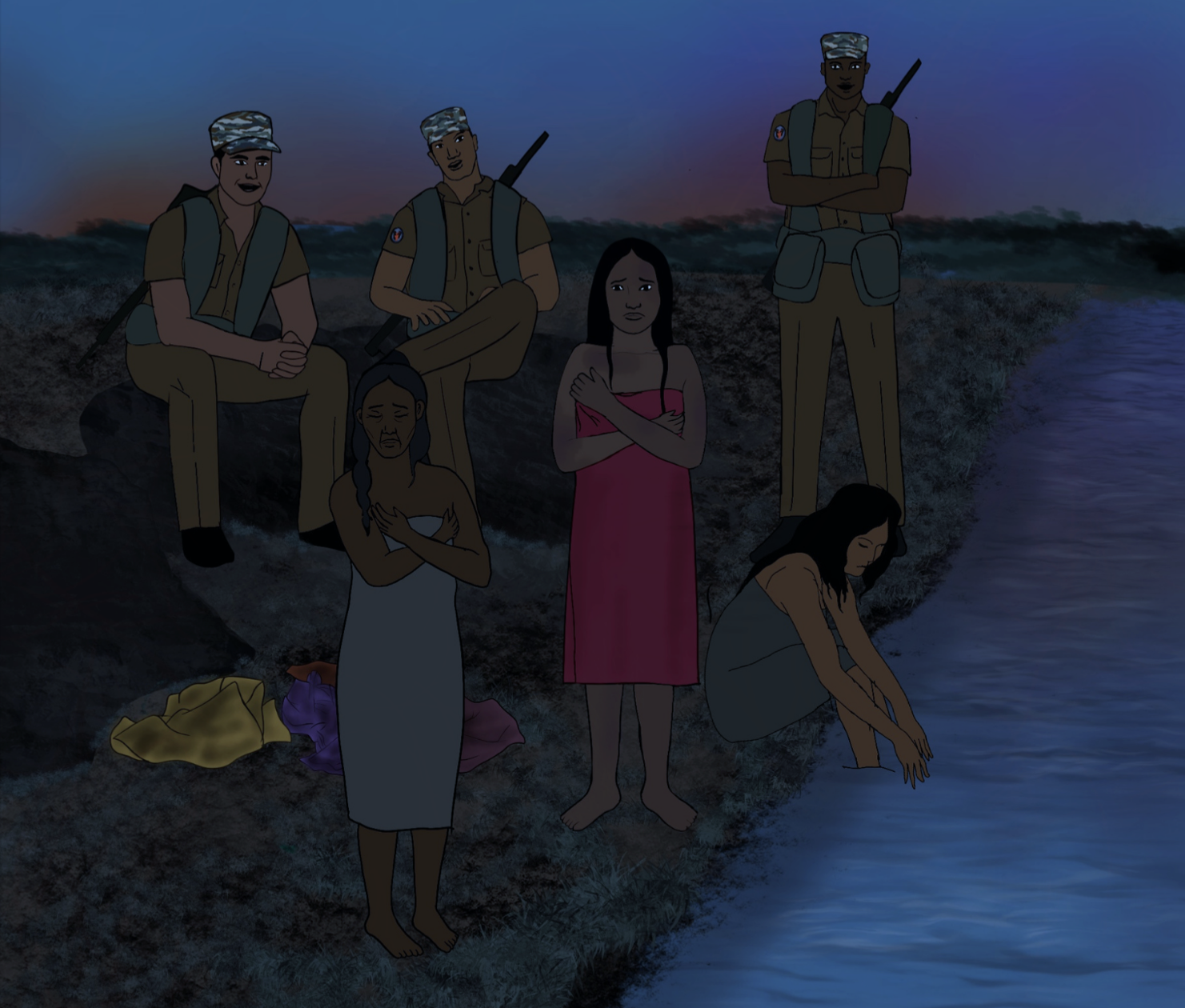
Illustration by House of Thulasi
A new report by People for Equality and Relief in Lanka (PEARL) examines how Sri Lanka has failed to punish perpetrators of conflict-related sexual violence against Tamils.
The report, 'No Trials, Only Tribulations for Tamil Victims of Sri Lanka’s Conflict-related Sexual Violence', focuses on emblematic cases where Sri Lanka has not pursued legal action against Sri Lankan perpertrators despite credible evidence of international crimes, including rape and other forms of sexual violence.
"Female rape victim-survivors and the families of murdered rape victims rarely, if ever, saw justice in Sri Lanka’s highly politicised courts, which took their cue from successive presidents who almost exclusively protected the security forces rather than Tamil victims and victim-survivors," the report notes.
The US-based advocacy organisation also highlight that Tamil women and girls living in the heavily militarised North-East are at a "high risk for sexual violence, exploitation, and harassment."
In a press release, PEARL's Executive Director Archana Ravichandradeva said:
“Tamil rape survivors and the families of murdered rape victims face the threat of reprisals and relentless impunity in Sri Lanka’s justice system."
“International justice is the only recourse available for Tamil victims and survivors of conflict-related sexual violence and other international crimes. The international community must not waver or delay prosecutions any further.”
Throughout the report, PEARL highlights Sri Lanka's unwillingness to investigate conflict-related sexual violence and other war crimes perpetrated by the state. Due to the state's lack of willingness, PEARL calls on the international community to take swift action to bring justice for Tamil victims.
Ahead of the United Nations Human Rights Council (UNHRC) 51st session next week, the organisation reiterate longstanding calls for the UNHRC to "establish an international criminal justice mechanism to investigate alleged Sri Lankan perpetrators of international crimes" and called on member states to "actively apply universal jurisdiction principles to similarly investigate and prosecute alleged Sri Lankan perpetrators as well."
Read the full report here.
